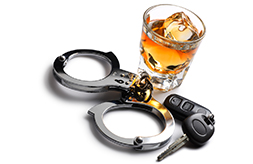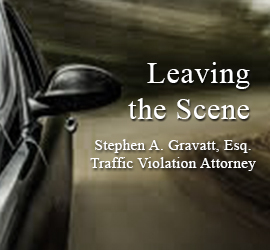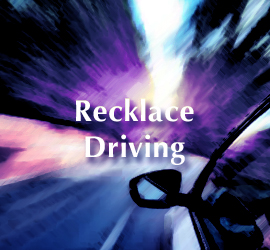New Jersey DWI Attorney defends drug DWI charges.
Stephen A. Gravatt, Esq.
Attorney
565 NJ 35
Middletown, New Jersey 07748
(732)-337-7922
Email: pipking@comcast.net
WHAT CONDUCT CONSTITUTES A DWI controlled dangerous substances?
Most of us know that if you drink too much alcohol and operate a motor vehicle in the State of New Jersey you could be convicted of DWI for violating N.J.S. 39:4-50, e.g., the New Jersey drunk driving statute.
But did you know that you can also be prosecuted for, and convicted of, CDS-drug DWI or DUI for for impairment while operating a motor vehicle by the use of prescription drugs, e.g., drugs legitimately prescribed by your physician to treat pain, depression, anxiety, like opioids, benzodiazepenes, marijuana?
Yes. N.J.S.A. 39:4-50 makes operation of a motor vehicle while impaired by hallucinogenic drugs a violation.
What is “impairment” and how is it established?
Police establish impairment by correlating the results of balance and coordination testing, urine testing and Alcotest breath testing. Initial balance and coordination testing should be performed by a Drug recognition Expert (DRE). An initial session of physical observation and balance and coordination testing is performed. The defendant is asked to give a urine sample for laboratory analysis. The defendant may be asked to take breath testing to evaluate alcohol impairment. If the DRE finds evidence of impairment, but the alcohol testing shows no alcohol consumption, the police usually charge Drug DWI for operating a motor vehicle while impaired by ingestion of CDS (controlled dangerous substance).
Commonly ingested drugs which can impair one’s ability to operate a motor vehicle are Marijuana, opiate medications, such as heroine, oxycodone, percocet, and benzodiazopeme medications, such as valium, zanax, alprolazam . It is of no consequence that you possessed a valid prescription from a licenses M.D. for possession and use of the drug, it is the impairment that determines illegal operation pf the vehicle.
What are the penalties if I am convicted of a Drug DWI?
Penalties, if convicted, are identical to alcohol DWI charges except that there is no lower tier on a fist offense for DWI. That means, on a first offense, if convicted, the penalties are monetary fines in the amount of $500.00 to $800.00, plus driver’s license suspension of not less than 7 months nor more than 12 months, plus possible jail time of 30 days, plus not less than 12 hours IDRC (Intoxicated Driver’s Resource Center) plus possible requirement that you install the interlock device on your vehicle when your driver’s license is restored by MVC (New Jersey Motor Vehicle Commission).
Caution: There can be additional criminal charges and fines if you have no prescription from an M.D. for the drug you have ingested.
On a 2nd conviction for DWI, the monetary penalties increase to $1,000.00 to $2,000.00, plus driver’s license suspension of not less than 24 months, plus possible jail time of 2 to 90 days and/or community service of 30 days, plus not less than 24-48 hours IDRC, plus mandatory installation of theinterlock device when your driver’s license is finally restored.
On a 3rd conviction for DWI, the monetary penalties are $2,000.00.plus a 10 year driver’s license suspension, plus mandatory jail time of 180 days, plus ot less than 48 hours IDRC, plus installation of the interlock device.
Can an experienced NJ DWI criminal defense attorney establish defenses that successfully mitigate the charges?
Yes–especially if no DRE testing was performed or a DRE test was not competently performed.
In State v. Tamburro, it was established that the State had the burden of showing that the defendant suspected of driving while intoxicated was (at the time of operation) experiencing a substantial deterioration or diminution of the mental faculties or physical capabilities due to ingestion of a drug…so as to make it improper to drive on the highway. In State v. Bealor, 2005, WL 1048112, the Appellate Division found that in order to prove DWI based upon marijuana intoxication the State must show that (1) the marijuana was present in the driver’s system while he was driving and (2) that the marijuana (use) resulted in a substantial deterioration or diminution of the defendant’s mental faculties or physical capabilities as to make it improper for him to drive.
In practice, this means that a police officer who has had specific training in the detection of drug ingestion, known as a Drug Recognition Expert (DRE) must have concluded after observation and administering certain tests that the defendant showed physical symptoms of impairment and in addition to that, the police must obtain a urine or blood test which turns up positive for the suspected drug. The urine test alone is not enough to prove guilt beyond a reasonable doubt because drugs are often detectable long after their ability to impair has passed. The observations without the urine test is often equally insufficient to prove impairment due to impairment caused by ingestion of a specific drug.
DO I NEED TO RETAIN AN ATTORNEY TO DEFEND ME FOR CDS-DRUG DWI-DUI CHARGES?
Yes. I would recommend it. An experienced attorney might be able to persuade the trier of fact that guilt of impairment while operating a motor vehicle cannot be established because police error precludes a finding of guilt beyond a reasonable doubt.
In my 30 years of handling DWI-DUI cases I have helped many clients avoid possible conviction, loss of driver’s license, jail time, points, maximum fines. If charged I can help you.
Please contact me today for your free initial consultation and for a no nonsense discussion of how I can help you if retained.
Stephen A. Gravatt, Esq.
(732)-337-7922
www.njdwicriminaldefenseattorney.com




